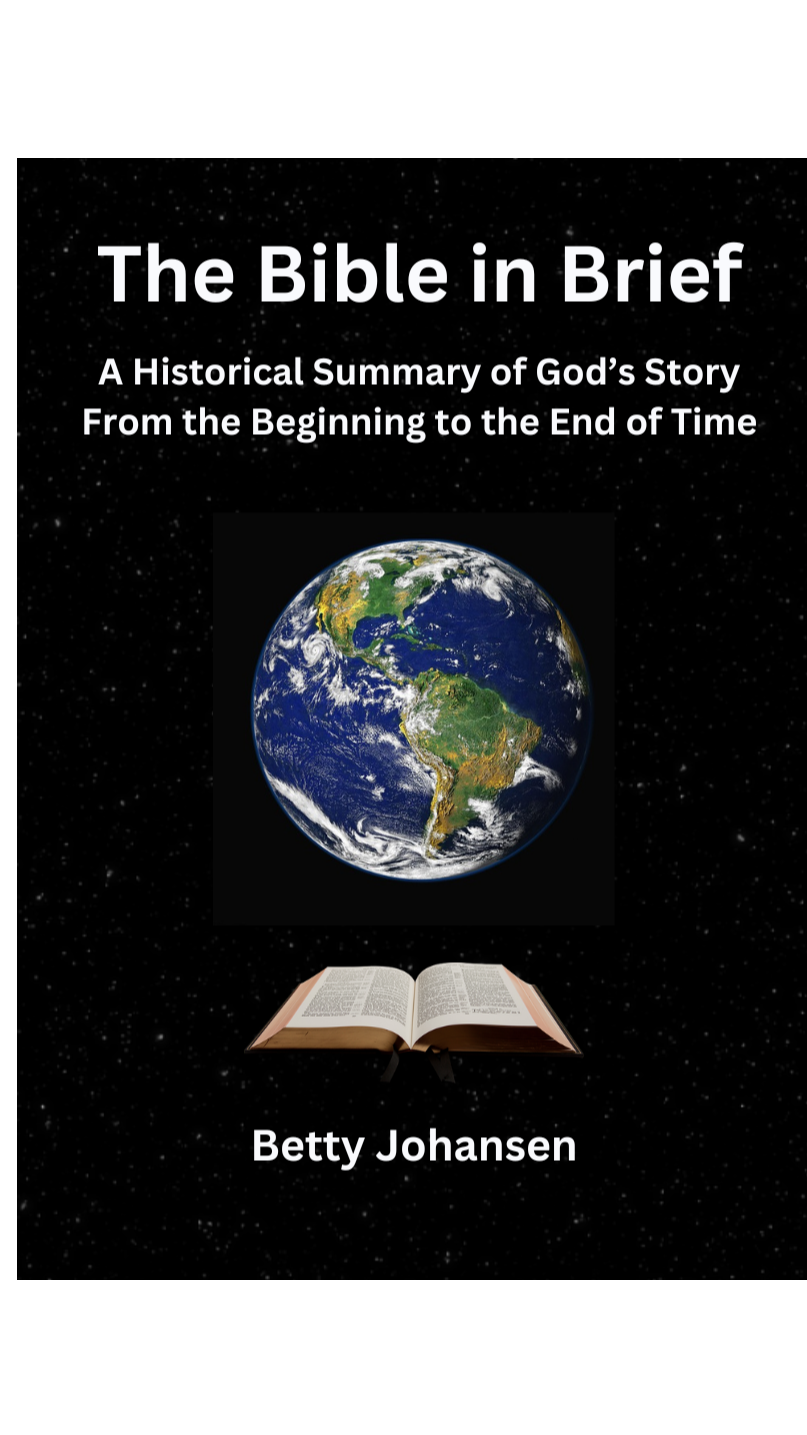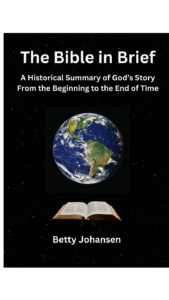Big Spring, Texas / Syndication Cloud / July 07, 2025 / Wordsmith World

Key Takeaways:
- The Bible presents a unified narrative about God’s desire to dwell with humanity, beginning in Eden and culminating in the New Jerusalem.
- When paradise was lost through human rebellion, God immediately started a redemption plan that runs through the entire biblical story.
- The Old Testament shows humans consistently failing to achieve the holiness needed for a relationship with God through their efforts alone.
- Jesus Christ stands as the pivotal point in the biblical narrative, offering Himself as the perfect sacrifice to restore what Eden lost.
The Bible’s Unifying Purpose: God Dwelling With Humanity
The Bible isn’t merely a collection of disconnected stories and religious teachings. From Genesis to Revelation, one clear purpose stands out: God desires intimate fellowship with humanity. This unifying theme connects every narrative, law, poem, and prophecy throughout Scripture.
“Looking at the biblical bookends—Eden in Genesis and New Jerusalem in Revelation—reveals God’s consistent intention,” says Betty Johansen, an author writing about the major unifying themes of Scripture.
In her latest work, she explains how, in Eden, God walked with Adam and Eve in the cool of the day, enjoying direct communion with His creation. In Revelation’s final chapters, a triumphant declaration is made: “Look! God’s dwelling place is now among the people, and he will dwell with them” (Revelation 21:3). “These parallel images show that God’s ultimate purpose has never changed,” she says.
What makes this consistency remarkable is that the Bible was written over 1,500 years by approximately 40 different authors from various backgrounds. For Betty, this means that its central message remains consistent, suggesting a divine Author guiding the human writers.
The Beginning of God’s Story
Perfect Communion in the Garden
Genesis opens with a breathtaking portrait of creation culminating in Eden, which is not just a beautiful garden but the perfect dwelling place where God and humanity existed in unbroken relationship. This paradise wasn’t primarily about physical perfection but about perfect communion between Creator and created. Adam and Eve had uninhibited access to God, walking and talking with Him in perfect harmony.
The Rebellion That Changed Everything
This harmonious state didn’t last. Genesis 3 tells of the pivotal moment when Adam and Eve chose rebellion over relationship, disobeying God’s singular prohibition. This wasn’t simply about eating forbidden fruit; it fundamentally rejected God’s authority and wisdom. Their choice broke the intimate fellowship they had enjoyed with their Creator.
Separation and the Promise of Restoration
Even while pronouncing judgment, God showed the first glimpse of His redemptive plan. Genesis 3:15 contains what theologians call the “protoevangelium”, the first announcement of the gospel. God promised that a descendant of Eve would one day crush the serpent’s head, pointing to Christ’s future victory over Satan and sin.
This pattern—rebellion, judgment, and the promise of restoration—becomes the recurring rhythm throughout Scripture. From this point forward, the Bible follows God’s unfolding plan to restore the lost fellowship of Eden.
The Law’s Impossible Standard
God’s Holiness Revealed Through Commandments
The Old Testament shows why reuniting with God isn’t as simple as humans deciding to return to Him. God’s absolute holiness requires absolute perfection from those who would dwell in His presence.
The Law given through Moses served multiple purposes. It revealed God’s holy character and the standard of righteousness required for fellowship with Him. It also showed humanity’s consistent inability to meet that standard. As Paul later explained, ‘Therefore no one will be declared righteous in God’s sight by the works of the law; rather, through the law we become conscious of our sin’ (Romans 3:20).
Israel’s Cycle of Failure
Israel’s history repeatedly demonstrates humanity’s inability to maintain faithfulness to God. Despite witnessing God’s miraculous deliverance, provision, and protection, the people consistently turned from Him toward idolatry and disobedience.
During this period, God’s prophets not only called people back to covenant faithfulness but increasingly pointed toward a coming Messiah. They foretold a new covenant that would address the fundamental problem of human inability to keep God’s law. The prophets spoke of God writing His law on human hearts rather than stone tablets (Jeremiah 31:33), hinting at an internal transformation enabling genuine obedience.
Jesus: God’s Definitive Answer
The Word Became Flesh: God Among Us
After centuries of prophetic anticipation, the New Testament begins with a revolutionary announcement: “The Word became flesh and made his dwelling among us” (John 1:14). This verse uses language that mirrors the Old Testament tabernacle, where God’s presence dwelt among Israel. Jesus’s birth wasn’t merely God sending a representative; it was God Himself coming to dwell with humanity.
The Perfect Sacrifice: Paying Sin’s Price
The gospel accounts build toward Jesus’s ultimate purpose: to offer Himself as the perfect sacrifice for humanity’s sin. What thousands of animal sacrifices could only temporarily cover, Jesus addressed permanently. As the sinless Son of God, He alone could offer a sacrifice of infinite value.
Resurrection: Defeating Death and Separation
If the story had ended with Jesus’s death, it would have been a noble but ultimately insufficient sacrifice. The resurrection confirms everything Jesus claimed and accomplished. By conquering death, Jesus demonstrated His power over sin’s ultimate consequence.
The resurrection also serves as the firstfruits of the new creation. Just as Jesus was raised with a glorified body, believers are promised future resurrection bodies suitable for eternal fellowship with God. The physical resurrection affirms that God’s redemptive plan includes restoring the material world, not just spiritual realities.
Choose Fellowship with God: The Bible’s Invitation to You
The Bible concludes in Revelation with an extraordinary vision of the New Jerusalem, not a disembodied spiritual realm but a renewed physical reality where heaven and earth merge. This “garden city” contains the Tree of Life from Eden, creating a deliberate connection to the Genesis narrative.
“The consistency of the biblical narrative from Genesis to Revelation points to a purposeful divine Author directing history toward this culmination,” says Betty. “Though written across millennia by dozens of human authors, the Bible tells one unified story: God’s persistent pursuit to dwell with the people He loves.”
Thus, the choice presented in Eden returns in Revelation: Will you choose relationship with God?
The invitation to restored fellowship and paradise regained awaits your response.
Wordsmith World
Texas
Big Spring
Texas
79720
United States

















